Jenrick accused of being ‘anti-British’ after saying he would ‘probably’ ban burqa – as it happened

Robert Jenrick, the shadow justice secretary, has said that he would probably support banning women wearing burqas in public.In making the comment, in a phone-in on Talk, Jenrick contradicted the position taken by his party leader, Kemi Badenoch.Asked if he would ban the burqa, Jenrick replied: “I probably would ban the burqa.”Jenrick dismissed suggestions that this was an extreme position, saying that in Italy the prime minister Giorgia Meloni is introducing a burqa ban.He went on:I think there’s definitely a strong argument for it.
There are basic values in this country and we should stand up and defend them, and and where you’re seeing them fraying at the edges or frankly being completely destroyed, whether it’s Sharia courts or wearing of the burqa, these are issues we’re going to have to confront if we want to build the kind of society that we want to hand on to our kids and grandkids.In June, after winning a byelection for Reform UK, Sarah Pochin used her first question at PMQs to ask Keir Starmer if he would back a burqa ban.At the time that was not official Reform UK policy, and Pochin’s intervention to contributed to the decision of Zia Yusuf, who is Muslim, to resign as Reform’s chair.Yusuf is now back in a senior party job, as head of policy, and Reform is closer to backing a burqa ban.After Pochin raised the issue at PMQs, Badenoch gave an interview saying that, while she did not like women wearing burqas in her constituency surgery, and while she supported the right of employers to stop their staff wearing burqas, she was in favour of women being allowed to wear what they like.
Earlier this month Jenrick was accused of fuelling a “fire of toxic nationalism” after the Guardian revealed that he had complained of “not seeing another white face” on a visit to Handsworth in Birmingham.He claimed that showed community integration was failing.Commenting on Jenrick’s burqa comment, the Labour MP Sam Rushworth said it was “anti-British” and “against what our nation stands for”.That's so anti-British.It goes against what our nation stands for.
Rachel Reeves has blamed a heavier than anticipated blow from Brexit and austerity for forcing her to take action to balance the books at next month’s autumn budget.The governor of the Bank of England, Andrew Bailey, has warned recent events in US private credit markets have worrying echoes of the sub-prime mortgage crisis that kicked off the global financial crash of 2008.Robert Jenrick, the shadow justice secretary, has said that he would probably support banning women wearing burqas in public.(See 4.03pm.
)Boris Johnson laid blame on the Department for Education (DfE) over its lack of preparation for school closures at the outbreak of the pandemic, telling the Covid-19 inquiry that he assumed detailed planning was going on behind the scenes.For a full list of all the stories covered on the blog today, do scroll through the list of key event headlines near the top of the blog.The Green party is at 15% in the latest YouGov poll, level pegging with the Lib Dems.And both parties are only 2 points behind the Tories.It is the highest figure the Greens have reached in a YouGov poll.
Shabana Mahmood, the home secretary, has said it was “unacceptable” for the Council of Europe’s human rights commissioner, Michael O’Flaherty, to complain about the impact of the recent supreme court’s ruling on trans people,In a letter responding to O’Flaherty, Mahmood said:I would like to take this opportunity to emphasise that I consider it unacceptable to question the validity of the supreme court in making this decision,The court has provided legal clarity on this issue, exactly as they are expected to,I find any attempt to cast aspersion on the supreme court’s decision disappointing,A third survivor of child sexual abuse has quit her role in the national inquiry into grooming gangs, PA Media reports.
Elizabeth, not her real name, resigned from the inquiry’s victims and survivors liaison panel on just a day after survivors Fiona Goddard and Ellie-Ann Reynolds also quit citing heavy criticism at the Home Office’s handing of the issue, PA says.In a resignation letter posted on X, the survivor said she was “deeply concerned that there still isn’t a genuine understanding of the grooming gangs scandal, nor the lasting trauma it has caused”.She said:What is happening now feels like a cover-up of a cover-up.It has created a toxic environment for survivors, filled with pressures that we should not have to deal with.Two Western Balkans nations have stressed that they will not host “return hubs” for refused asylum seekers ahead of a summit with Keir Starmer, PA Media reports.
PA says:Talks are set to continue with countries in the region about potentially acting as third countries to process those who have not been granted asylum in the UK before they are deported, it is understood.But no deals are expected to be announced at the summit at which the prime minister will host the six leaders as the UK seeks to agree further measures to bring down the number of migrants arriving illegally.At an event at Chatham House on Tuesday, Albanian prime minister Edi Rama repeated his earlier rejection of such an agreement.“When it comes to the to the hubs, or whatever they are called, I’ve said it, and I repeat – never in Albania,” he said.Montenegro’s prime minister Milojko Spajic said his country was not part of the Western Balkans smuggling route because the railway infrastructure is not developed enough.
“Montenegro is not part of the migrant routes through the Balkans,” he said.Rama asked him if he would host a hub if the UK built railways in his country, to which Spajic replied: “We definitely accept it – if they would invest 10 billion euros into building railways.”The UK is already working with partners in the region – comprised of North Macedonia, Montenegro, Serbia, Albania, Bosnia and Herzegovina and Kosovo – as part of Labour’s pledge to target smuggling gangs and bring down the number of small boat arrivals across the Channel.Rachel Reeves, the chancellor, is expected to have to raise taxes by as much as £30bn a year in the budget next month, and convention wisdom says this will be a political nightmare for Labour.But the thinktank Demos has published a report arguing that the budget could be a positive “turning point” for the government if voters can be persuaded that it will lead to the taxation system being fairer and more effective.
Demos is proposing a series of tax reform that collectively would raise £21bn.Normally researchers test the likely popularity or otherwise of policies with straightforward polling; you ask 2,000 people about a list of policies, and find out what they like and dislike.The Demos research is different because instead, using focus groups, it explored how voters would respond to the various arguments that could be used to explain and defend budget tax rises.It looked at a total of 11 “narratives and framing devices” , and tested them for popularity and engagement (measured by would people click on an online article with a headline using this framing).It concluded that arguments about using tax increases for a positive purpose were more successful than arguments focusing on the need for cuts, and it found that an argument about closing loopholes and rebalancing taxes worked best.
Demos says:The conversation around plugging the fiscal hole has often focussed on which path will be least damaging to public confidence.Yet, our polling actually finds that the public would, given effective framing, tend to feel positively about the announcement of our package of tax rises.When presented with the closing loopholes and rebalance taxes frame - “Taxes to rise after chancellor plans to slash loopholes and rebalance the tax system” - 39% say they would feel positively about the announcement, and 29% would feel neither positively nor negatively.Just 24% would feel negatively, including just 9% feeling very negatively.This means the tax rises are associated with a net positivity score of 10%.
Rather than harming public confidence in the state to deliver good policy, the reforms could help rebuild it.Demos also gives this example of what a budget news report might look like if Reeves presents tax rises through the ‘closing loopholes and rebalance taxes’ frame.Summing up, the Demos report, written by Dan Goss, says:Given the inevitable criticism that will come with tough but needed tax rises - and the unpredictability of the debate - the government’s communication needs to be flexible.In doing so, it must be grounded in a thorough understanding of the public’s values and priorities.This means understanding, for example, that vague promises of more NHS funding are met with cynicsm, and that the public - and particularly distrustful groups like Reform supporters - instead demand plans for a change with concrete details …The upcoming budget can be a turning point - the beginning of a new narrative about competent and fair governance that helps rebuild both the nation’s finances and the public’s eroded trust in the state.
Downing Street has said that Keir Starmer is opposed to banning the burqa.Asked about Robert Jenrick’s comments today (see 4.03pm), a No 10 spokesperson said:Britain has a proud tradition of religious tolerance within the law.The government is committed to creating a strong and integrated society in which hatred and prejudice are not tolerated and in which all people are free to express their religious identity without fear of it resulting in harassment and discrimination or attack.Everyone has the legal right to freedom of religion, and this includes the right to wear religious attire, except where limitations are prescribed by law for specific limited purposes.
Robert Jenrick, the shadow justice secretary, has said that he would probably support banning women wearing burqas in public.In making the comment, in a phone-in on Talk, Jenrick contradicted the position taken by his party leader, Kemi Badenoch.Asked if he would ban the burqa, Jenrick replied: “I probably would ban the burqa.”Jenrick dismissed suggestions that this was an extreme position, saying that in Italy the prime minister Giorgia Meloni is introducing a burqa ban.He went on:I think there’s definitely a strong argument for it.
There are basic values in this country and we should stand up and defend them, and and where you’re seeing them fraying at the edges or frankly being completely destroyed, whether it’s Sharia courts or wearing of the burqa, these are issues we’re going to have to confront if we want to build the kind of society that we want to hand on to our kids and grandkids.In June, after winning a byelection for Reform UK, Sarah Pochin used her first question at PMQs to ask Keir Starmer if he would back a burqa ban.At the time that was not official Reform UK policy, and Pochin’s intervention to contributed to the decision of Zia Yusuf, who is Muslim, to resign as Reform’s chair.Yusuf is now back in a senior party job, as head of policy, and Reform is closer to backing a burqa ban.After Pochin raised the issue at PMQs, Badenoch gave an interview saying that, while she did not like women wearing burqas in her constituency surgery, and while she supported the right of employers to stop their staff wearing burqas, she was in favour of women being allowed to wear what they like.
Earlier this month Jenrick was accused of fuelling a “fire of toxic nationalism” after the Guardian revealed that he had complained of “not seeing another white face” on a visit to Handsworth in Birmingham.He claimed that showed community integration was failing.Commenting on Jenrick’s burqa comment, the Labour MP Sam Rushworth said it was “anti-British” and “against what our nation stands for”.That's so anti-British.It goes against what our nation stands for.
Rishi Sunak, the former PM, is joining the Sunday Times as a columnist,But anyone expecting him to use the platform to get stuck in to the latest Westminster controversy every week may be disappointed; Sunak, who is still an MP, will be writing for the business section,In a statement released by the paper, where his column will launch this weekend, the former investment banker said:As a long-time reader of the Sunday Times business pages, I’m honoured to be joining a great team as a columnist,In an era of profound change, I’m really looking forward to a weekly conversation with readers about the forces reshaping the world economy, from global politics to technology,Ben Taylor, the Sunday Times editor, said:Rishi’s vast expertise and brilliant mind will help readers navigate what is an increasingly challenging and complex business landscape.
His experience is unrivalled - on the world stage and in government - and we feel confident that he will be ‘appointment to read’ every weekend.Other former Tory leaders have regular newspaper columns.William Hague has a slot in the Times, and last year he was nominated for columnist of the year in the Press Awards.Boris Johnson writes regularly for the Daily Mail, but his column is rather less well regarded by his peers in the industry.Lord Hermer, the attorney general, and Darren Jones, the Cabinet Office minister, have been called to give evidence to a committee about the collapse of the China spy trial next week.
They will be questioned by the joint committee on national security strategy, which includes the chairs of the key Commons committees dealing with security.Matt Western, the committee’s chair has published the letters sent to Hermer and to Jones inviting them to the hearing and setting out questions they will be expected to answer.Among other questions, Jones has been asked to say if China poses “a direct threat to UK national security interests”.And Hermer has been asked, among other questions, to say to what extent he was consulted by the Crown Prosecution Service about its decision to drop this prosecution.In both letters, Western said:We would like to be clear that we are not seeking to apportion blame to any particular individual.
We would like to acknowledge publicly the important work conducted by public servants across national security and public prosecutions.Jess Phillips, the safeguarding minister, has rejected Tory calls for the national grooming gangs inquiry to be led by a judge.The Conservatives made this argument after two members of the inquiry’s oversight panel resigned, partly because of concerns about who was being lined up to lead it.Chris Philp, the shadow home secretary, said it was necessary to have a judge as chair for the inquiry to secure the trust of survivors.But, responding to a Commons urgent question, Phillips told him that was not the view of all victims.
“They are not one homogenous group of people, who all think the same thing, who all want the same exposure, who all want their identities known,” she said.Phillips also said that Louise Casey, the crossbencher peer and government adviser whose audit of the grooming gangs scandal persuaded Keir Starmer to change his mind and order a national inquiry, had specifically said she was not calling for “a traditional judicial-led inquiry”.In other developments during the UQ:Phillips said that the appointment of a chair of the inquiry was “at a critical stage” and that she hoped someone would be appointed “soon”.She said victims and survivors were meeting potential chairs today.She said she regretted the fact that two surviors have left the inquiry’s oversight panel.
She said the inquiry would be “time-limited to three years to ensure that victims and survivors receive answers swiftly”.At the Downing Street lobby briefing the PM’s spokesperson was also asked if the government would support the SNP’s call for legislation to remove Prince Andrew’s dukedom.(See 10.43am.) The spokesperson said the SNP early day motion was “procedurally a matter for the Speaker”.
He also said the government supported the royal family’s announcement about Andrew not using his titles.This was a rather misleading way of saying the government will not be backing the SNP proposal.Although Lindsay Hoyle, the Commons Speaker, does have some say over procedural matters in the Commons, he can’t just allocate time for a debate on an EDM, or on a bill affecting the royal family, at his own volition.If the government wanted this matter debated, it could arrange for that.It doesn’t.
Much of the lobby briefing today was taken up with questions about Prince Andrew, and whether he should be allowed to continue living rent-free in Royal Lodge, a mansion in Windsor owned by the Crown Estate.The PM’s spokesperson defended the lease arrangements, saying there were approved by the National Audit Office.He said:The terms of the lease was agreed with the Crown Estate, which is statutorily independent from government and required to operate commercially.The terms of the lease required an initial one-off £1m payment to the Crown Estate, as well, as a requirement for Prince Andrew to pay for substantial upfront refurbishment work.The National Audit Office reviewed the lease arrangements for Royal Lodge in 2005 and in its report, which was published at that time, concluded that the Crown Estate does not have any special procedures when negotiating agreements with the royal family
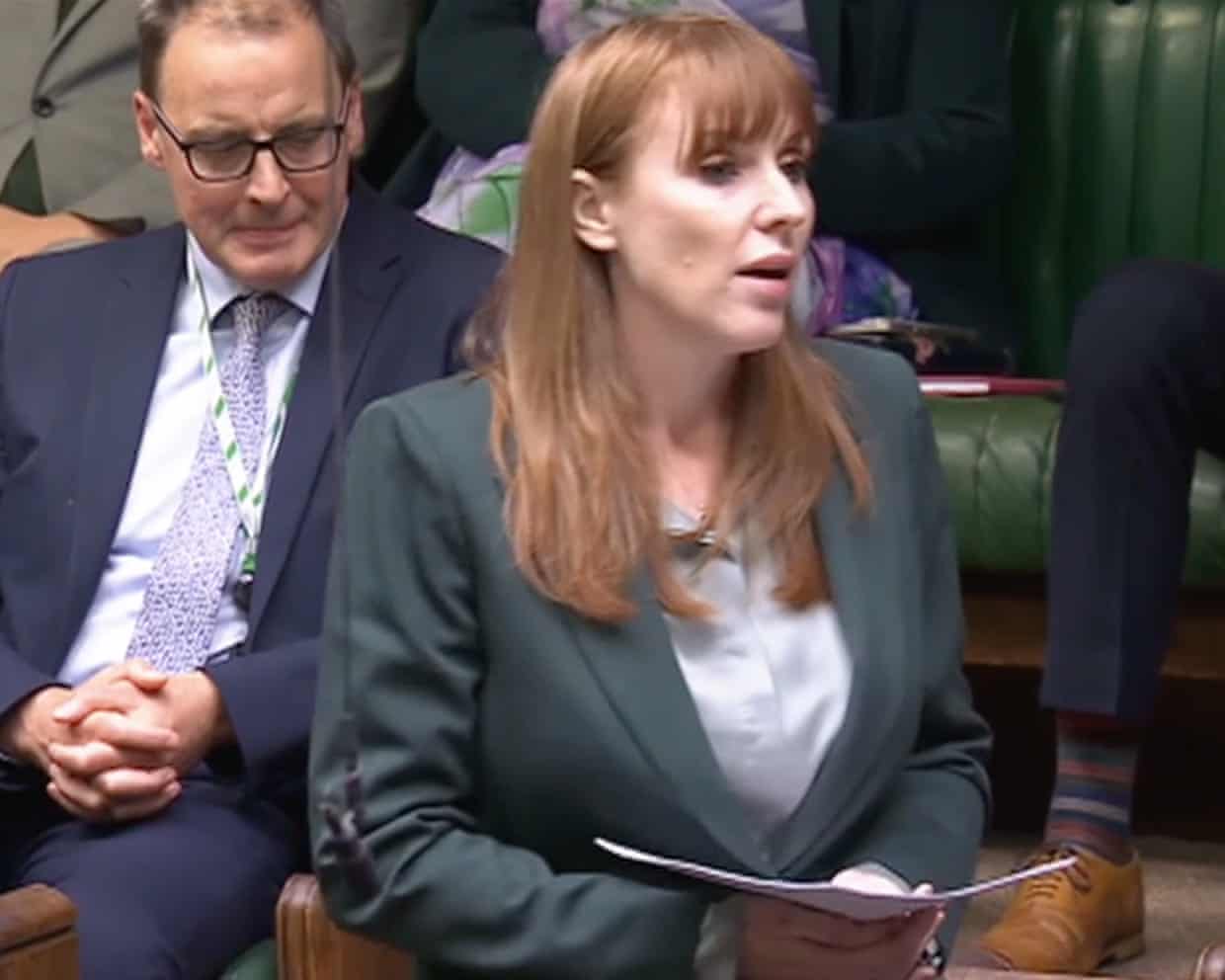
Rayner’s return gives a lift to Labour’s gloomy backbenchers
The chamber had been almost empty at the start of the ministerial statement on Heathrow airport. But by the end, the Labour benches were almost full. Though this was nothing to do with the pull of the transport secretary, Heidi Alexander. It was Angela Rayner who was the main attraction.The former housing secretary hasn’t been heard from since her resignation in early September
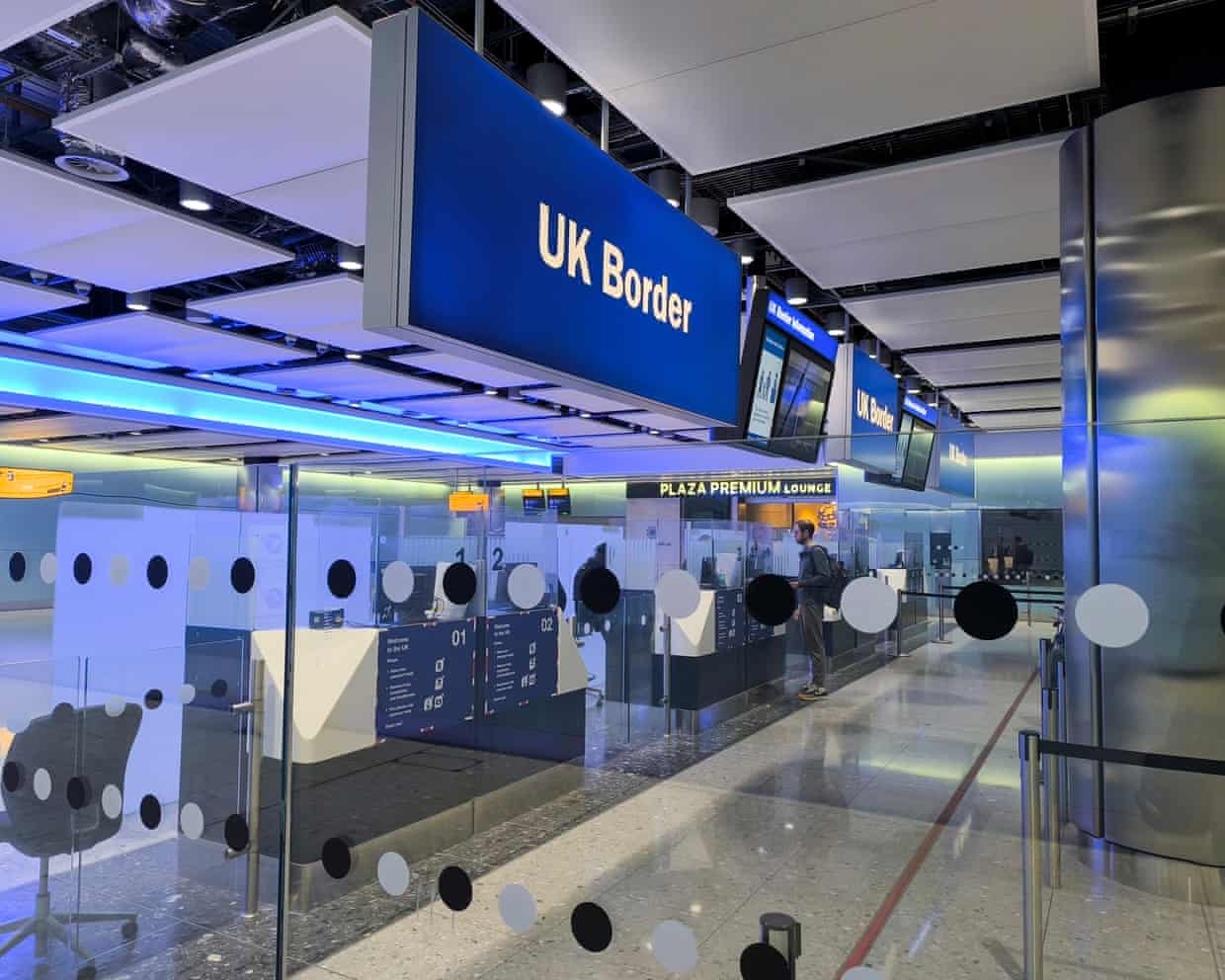
Tory plans to deport some people who are legally in UK are ‘grotesque’, says Labour – as it happened
Labour is now saying that it is “utterly grotesque” that the Conservative party is proposing to deport people from the UK who have previously been told they have indefinite leave to remain.The party issued a statement after Conservative HQ confirmed that Katie Lam’s comments on this topic in an interview at the weekend are in line with official party policy. (See 5.06pm.) The Tories published proposals in the form of a private member’s bill earlier this year and clause 3 of the bill says indefinite leave to remain (ILR) should be revoked from some categories of migrants, including people who have been in receipt of benefits and people earning less than £38,700 a year
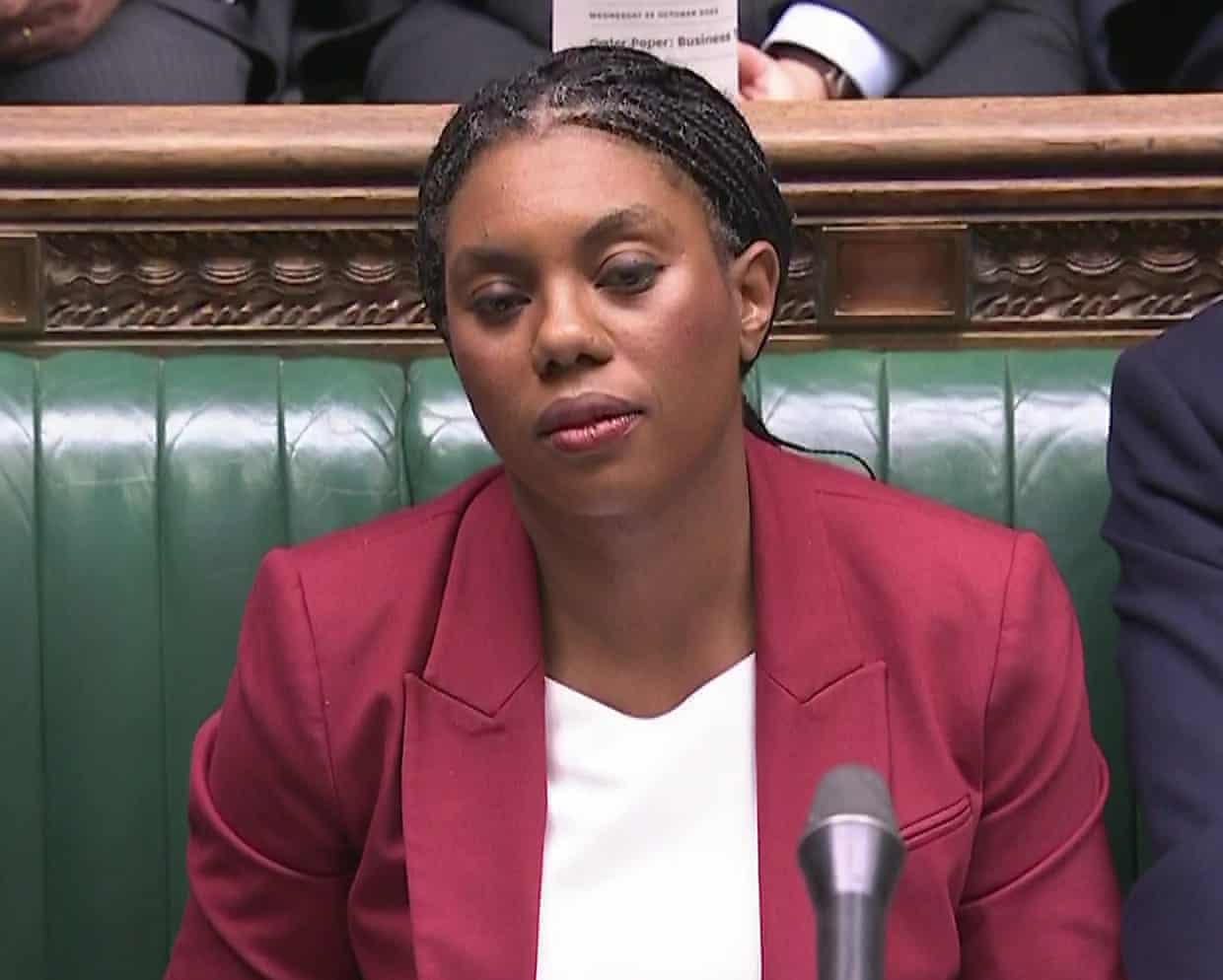
Deporting legally settled people is ‘broadly in line’ with Tory policy, says Badenoch’s office
The Conservative MP Katie Lam was “broadly in line” with party policy when she called for very large numbers of legally settled people to be deported from the UK, Kemi Badenoch’s spokesperson has said.Setting out Tory plans to retrospectively strip the right of indefinite leave to remain (ILR) from people who claim benefits, the spokesperson said this would not be the case for people getting the state pension, but he was unable to say whether someone could be deported if they received statutory maternity pay or shared parental leave.Speaking after prime minister’s questions, he said the key to whether or not someone was deported was if they were a “net contributor” in terms of tax and benefits, even though the party’s policy says this would happen if someone on ILR receives “any form of social protection”, an official term covering most benefits.In an interview with the Sunday Times, Lam, a Home Office shadow minister and Tory whip, said many people would need to lose their ILR status in order to ensure the UK is mostly “culturally coherent”, prompting criticism from other parties.Asked about Lam’s comments, Badenoch’s spokesperson said some had been “pulled out of context”
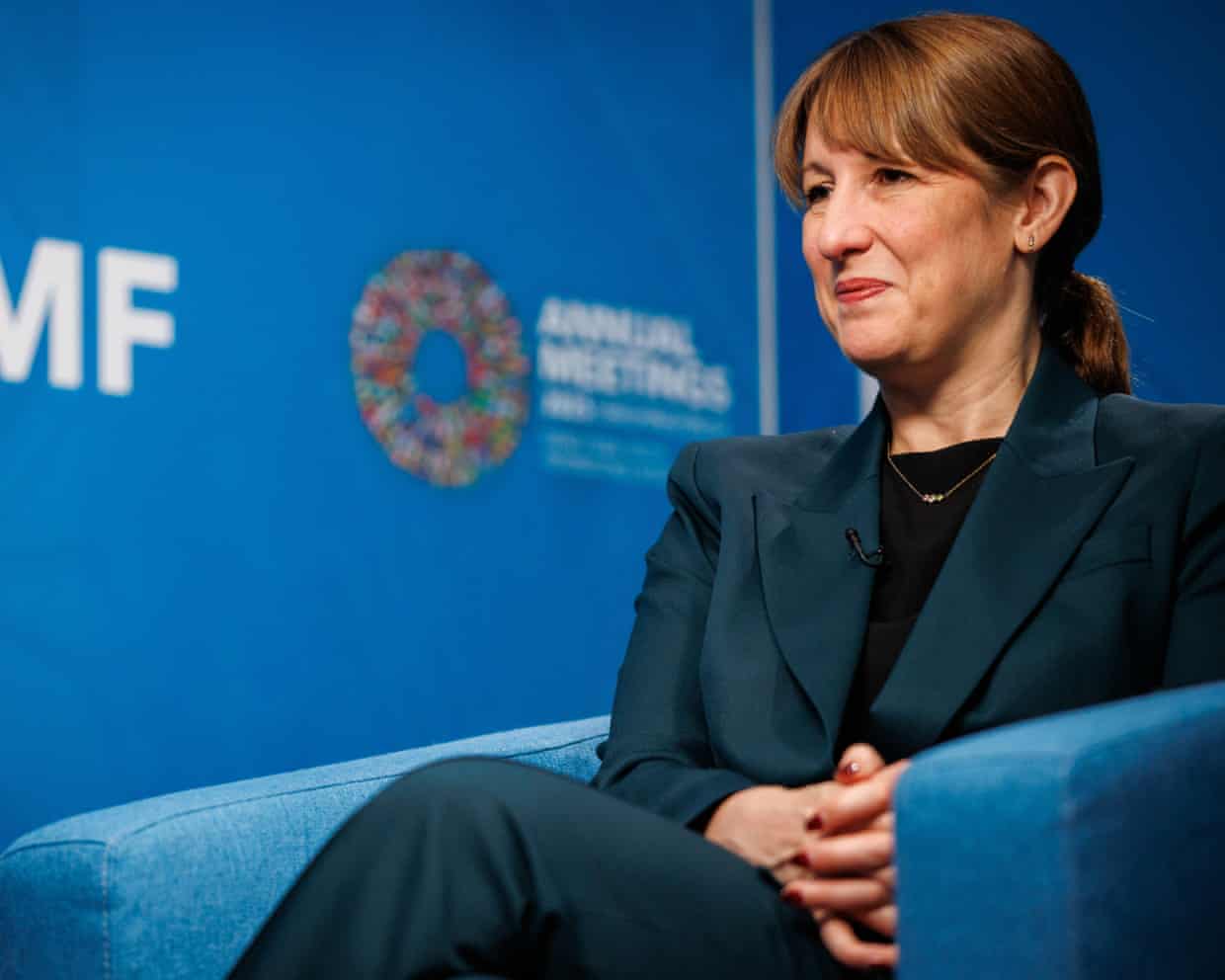
Chancellor hoping shift in tone on Brexit will ring true for key groups of voters
Rachel Reeves’ decision to pin the blame for the UK’s ailing economy on Brexit a month before a difficult and potentially unpopular budget could be considered high-risk given the lingering divisions and bitterness over the UK’s decision to leave the EU.But political analysts say she is aiming to appeal to voters who opted to leave but have changed their minds on this issue, young people who have joined the electorate in the nine years since the referendum, and remainers who are asking: what took you so long?In a speech on Tuesday, the chancellor said Brexit had caused more damage to the UK economy than official forecasters had previously outlined. She said costs had been “needlessly added to businesses” since the UK formally exited in 2021.Supporters of Brexit swiftly accused Reeves of attempting to “shift the blame for the dire state of Britain’s economy” ahead of November’s anticipated tax-raising budget. Some said she was “hunting for scapegoats”
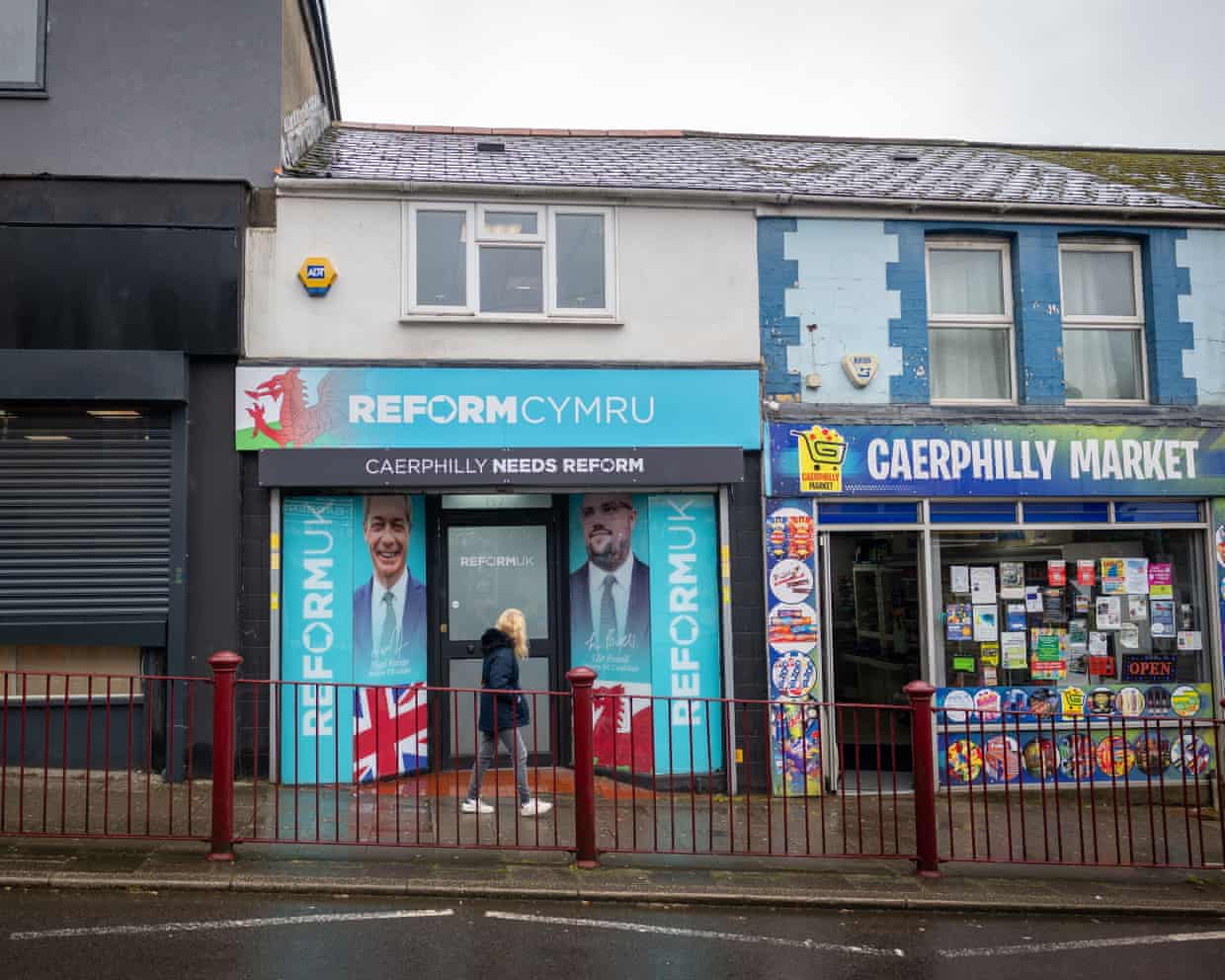
Caerphilly byelection could signal ‘fundamental realignment’ of Welsh politics
When he steps out of the byelection campaign office opposite Caerphilly castle, the Plaid Cymru candidate, Lindsay Whittle, tends to hear a couple of different cries from passing motorists.“Some of them shout: ‘Good luck Linds!’ I love that,” Whittle said. “It implies we’re old friends even though I may not know them personally.” Others are rather less positive. “They yell: ‘Stop the boats!’ You hear that all the time
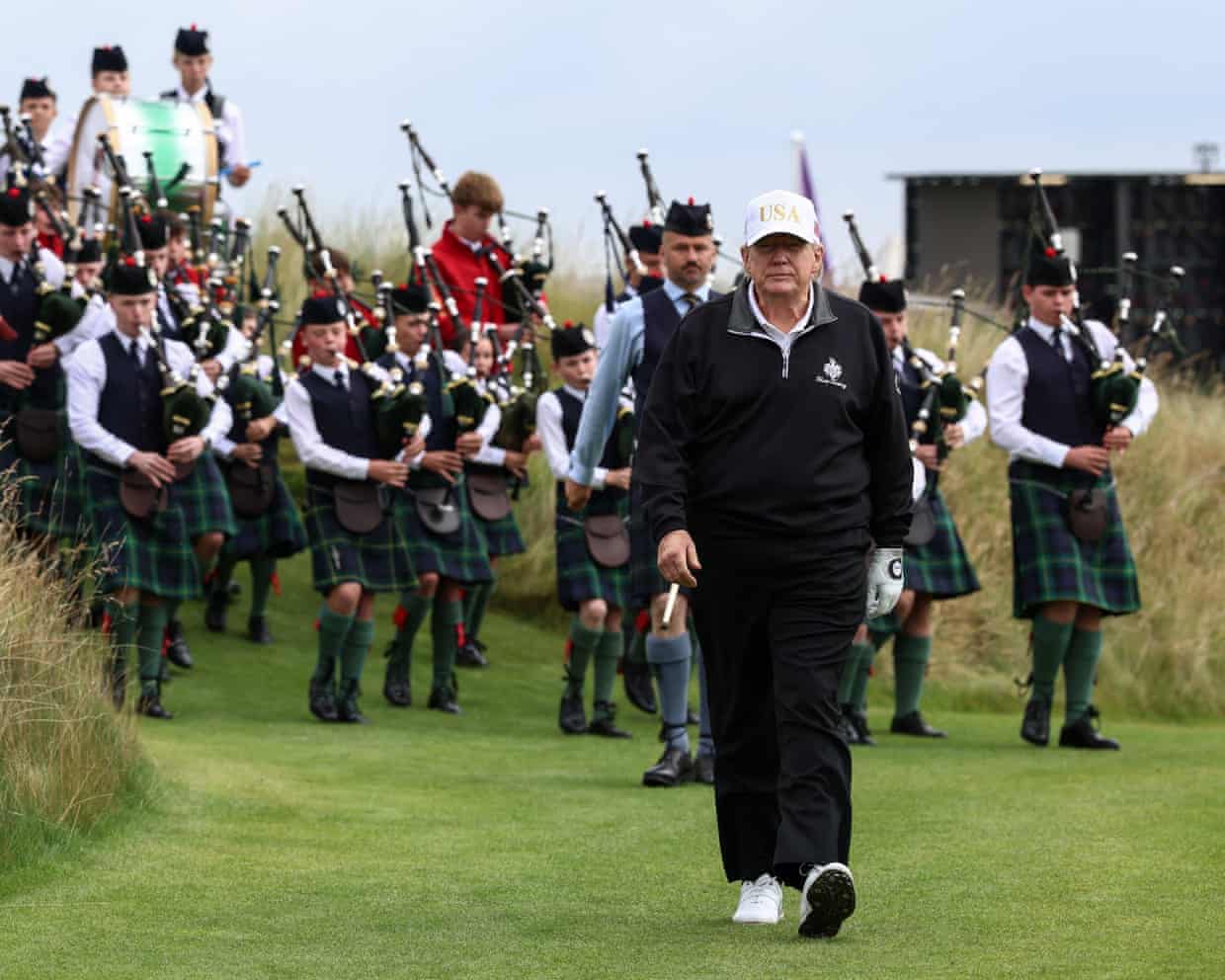
Scotland demands £24.5m from Westminster for Trump and Vance visits
The UK government needs to “step up” and reimburse the £24.5m cost of Donald Trump and JD Vance’s recent visits to Scotland, Holyrood’s public finance minister has said.Provisional costs of almost £24.5m for the two working visits have been published by the Scottish government.Ivan McKee said it was “ridiculous” that the UK government had so far refused to provide funding, framing both trips as private visits, despite the fact that the US president held meetings with the EU Commission president, Ursula von der Leyen, as well as the UK prime minister, Keir Starmer, during his time in Scotland in July

‘I was working as a cook when it went to No 1’: how Norman Greenbaum made Spirit in the Sky

I can’t stop watching videos of people discovering Beds Are Burning by Midnight Oil. Send help

‘London could 100% compete with Cannes’: Aids charity UK gala debut honours Tracey Emin

Champagne, celebs and artefacts: British Museum hosts first lavish ‘pink ball’ fundraiser

My cultural awakening: The Specials helped me to stop fixating on death
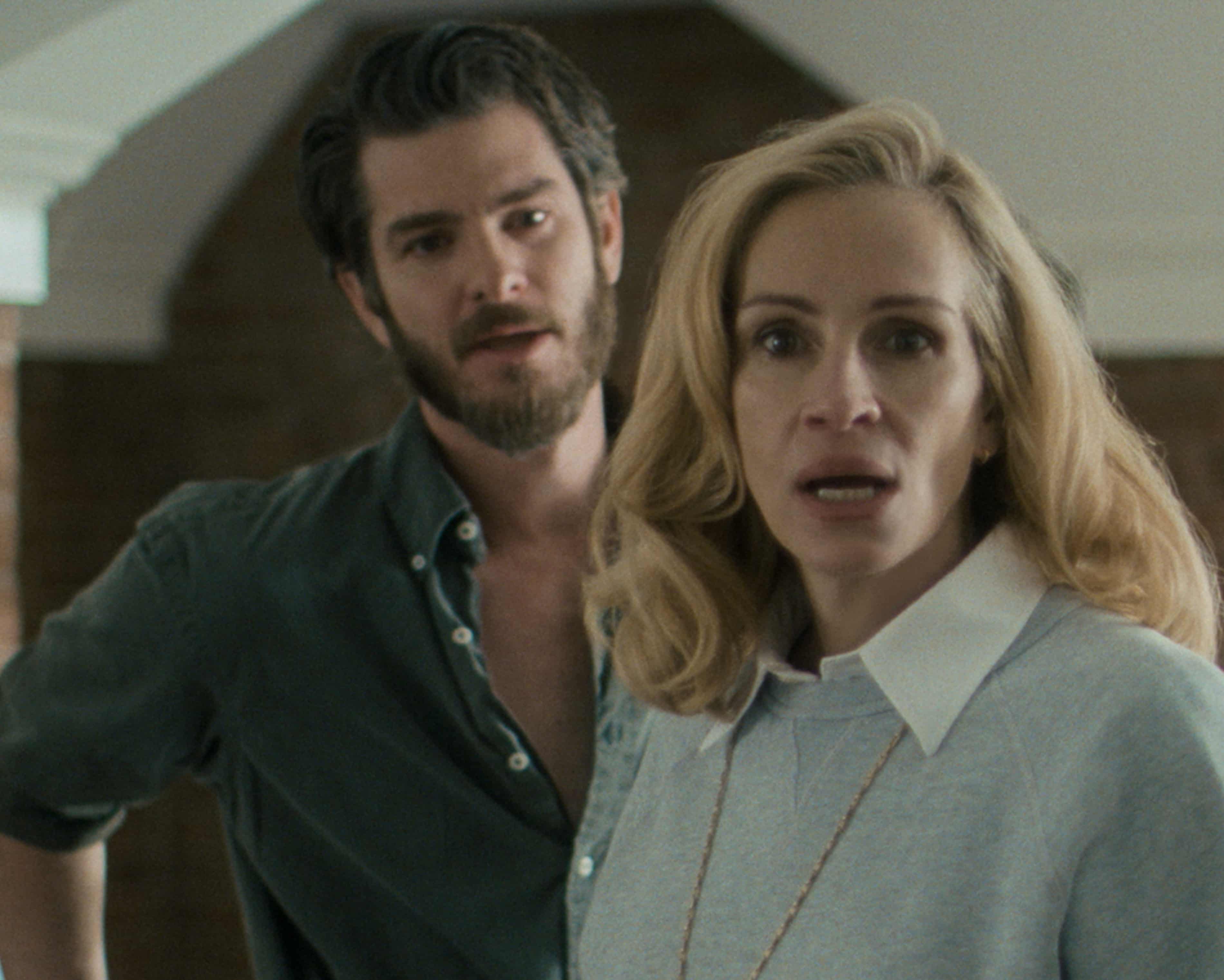
From After the Hunt to the Last Dinner Party: your complete entertainment guide to the week ahead